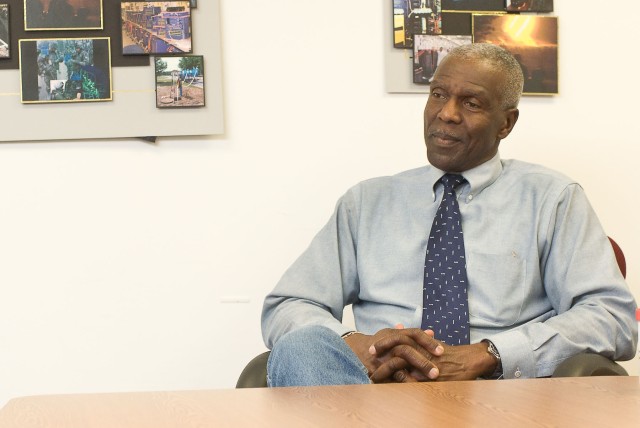FORT MONMOUTH, N.J. - According to former CECOM Command Sgt. Maj. (Ret.) Miguel Buddle, "it is the noncommissioned officers (NCOs) who are the ones keeping up with changing technology and then using their leadership capabilities to bring that new technology to the Soldier in the field." Buddle now works in the Technical Management Division Project Manager Network Service Center, Program Executive Office for Enterprise Information Systems.
"It is true. NCOs are the backbone of the Army. The NCO is the one who will either teach you the right way or wrong way to do something," said Buddle, a 30-year veteran whose last assignment brought him here.
"It was important to me to get the word out about what CECOM did and get feedback while interfacing with the community," he said. "Maj. Gen. Robert Nabors was our commanding general then and it was a pleasure to work with someone so smart who could make decisions and care about what we did. He had such high regard for the community."
He said his role was to uphold the reputation of what was then CECOM. "As command sergeant major I had to have the presence to represent the command and our commanding general. I had to have good speech and writing skills, convey an image of confidence and personally mix well with others," he said.
He thinks it is important for NCOs to set examples and motivate their Soldiers. In training, they must be aware of the strengths and weaknesses of their Soldiers and make modifications so that those Soldiers can learn from their mistakes and grow.
"NCOs do not need to know everything, but they do need to know where to go for help when they need it," Buddle said. As NCOs advance in their careers, they realize that with rapidly changing technology they need computer and network capabilities to keep Soldiers smart, helping them to understand the new technology.
Buddle, a native of Panama, said he planned on being in the military for two years, but ended up making it a career because of job satisfaction. He said that his family supported his decision.
"Everyone needs to be needed; everyone wants to know they can make a difference, that they can be a leader."


Social Sharing